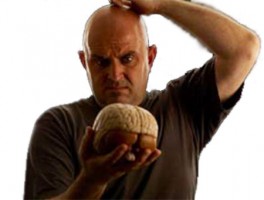 What does films and books “based on real events” have to do with reality? I was able to better understand the essence of the issue only after I myself tried to document the events of one month of my own life.The month was interesting, full of events, more precisely one big event – travel to the Himalayas. During the journey, I diligently photographed each stone, and regularly wrote in my diary. It would seem that there are all conditions for creating a wonderful documentary “based on” – sit and write.You have already guessed that now I will talk about the difficulties that arose in the process of describing real events:
What does films and books “based on real events” have to do with reality? I was able to better understand the essence of the issue only after I myself tried to document the events of one month of my own life.The month was interesting, full of events, more precisely one big event – travel to the Himalayas. During the journey, I diligently photographed each stone, and regularly wrote in my diary. It would seem that there are all conditions for creating a wonderful documentary “based on” – sit and write.You have already guessed that now I will talk about the difficulties that arose in the process of describing real events:
Memory gaps.
 Despite having a diary and a bunch of photos, it turned out that I simply can’t remember much. A feature of my (good in principle) memory is exceptional associativity. I can only remember those events and facts to which associative chains lead me. Accordingly, the easiest way to restore vivid events and documented events (in photographs and records) in memory.Those. the conclusion is simple – take pictures more often, write in more detail and you will not have grief. But there is one pitfall here…
Despite having a diary and a bunch of photos, it turned out that I simply can’t remember much. A feature of my (good in principle) memory is exceptional associativity. I can only remember those events and facts to which associative chains lead me. Accordingly, the easiest way to restore vivid events and documented events (in photographs and records) in memory.Those. the conclusion is simple – take pictures more often, write in more detail and you will not have grief. But there is one pitfall here…
Personal impressions.
When it comes to facts (they came there, did something, met someone), the scheme with documenting real events works with a bang. But the emotional side, personal impressions, thoughts are more difficult to restore. I remember pretty well when and where I was overwhelmed with ideas or feelings. But in order to adequately state them, it is not enough just to remember. It is necessary to re-imbue the moment, to re-pass through an emotional charge.The task is quite real, but I don’t have enough practice in this area, and often completely different feelings and ideas that were originally restored from a dry concentrate are restored.
Potential claims.
One way or another, in a story based on real events, there are characters based on real people…The world, as you know, is terribly small, and this additionally stimulates to maintain good relations always and with everyone. Accordingly, when describing the actions of the character, I somehow try to take into account the interests of his prototype – I don’t make fun of it, I smooth out the bumps, I present the shortcomings from the favorable side. This is good for the image of a real person (although who said that he would like my version of his personality). But that’s bad for the piece. Lost sharpness and tension. The reader is about to get bored and abandon the tedious sermon about good boys and girls from Sunday school.
Crossed aim
 It is necessary to initially decide what you write and for whom. Will it be a detailed denunciation of oneself with a timing of each fart, an illustrated guidebook, or a poetic essay with an abstract photograph instead of a conclusion? Who is considered as a potential reader: intelligence officer, literary critic, ordinary Anonymous from Internet, or you yourself (in case of a wild sclerosis in old age)After all, you won’t argue with the fact that the same events should be described in different ways depending on who is targeted?I, at the moment, the sight is shot down – I write haphazardly. The target audience has yet to be chosen. To be honest, I’m postponing this process, because I’m desperately fighting the temptation to make the project commercial. And this means – completely different images (view in profile, look into the distance – who knows, he will understand).
It is necessary to initially decide what you write and for whom. Will it be a detailed denunciation of oneself with a timing of each fart, an illustrated guidebook, or a poetic essay with an abstract photograph instead of a conclusion? Who is considered as a potential reader: intelligence officer, literary critic, ordinary Anonymous from Internet, or you yourself (in case of a wild sclerosis in old age)After all, you won’t argue with the fact that the same events should be described in different ways depending on who is targeted?I, at the moment, the sight is shot down – I write haphazardly. The target audience has yet to be chosen. To be honest, I’m postponing this process, because I’m desperately fighting the temptation to make the project commercial. And this means – completely different images (view in profile, look into the distance – who knows, he will understand).
Teddy boredom.
Boring texts about boring events are not only boring to read, they are boring to write. Inevitably, you want to filter the story, discard the dullness and focus on strong moments. Where “beauty” is not enough, it is not a sin to invent it yourself.
In the end.
- Surrounded and pressed by the conventions of the documentary genre, I feel like with every day of such a life under siege, I am more and more ripe for a breakthrough into another subspace. This, of course, is about fiction.
- Illusions about works “based on real events” have finally dissipated. It’s like vodka brewed on Borjomi – these real “relatives” have nothing in common and cannot have.
- We have a wonderful article-excuse for especially meticulous readers. “I made up everything, not a word of truth, it’s not about you, fuck off.”
